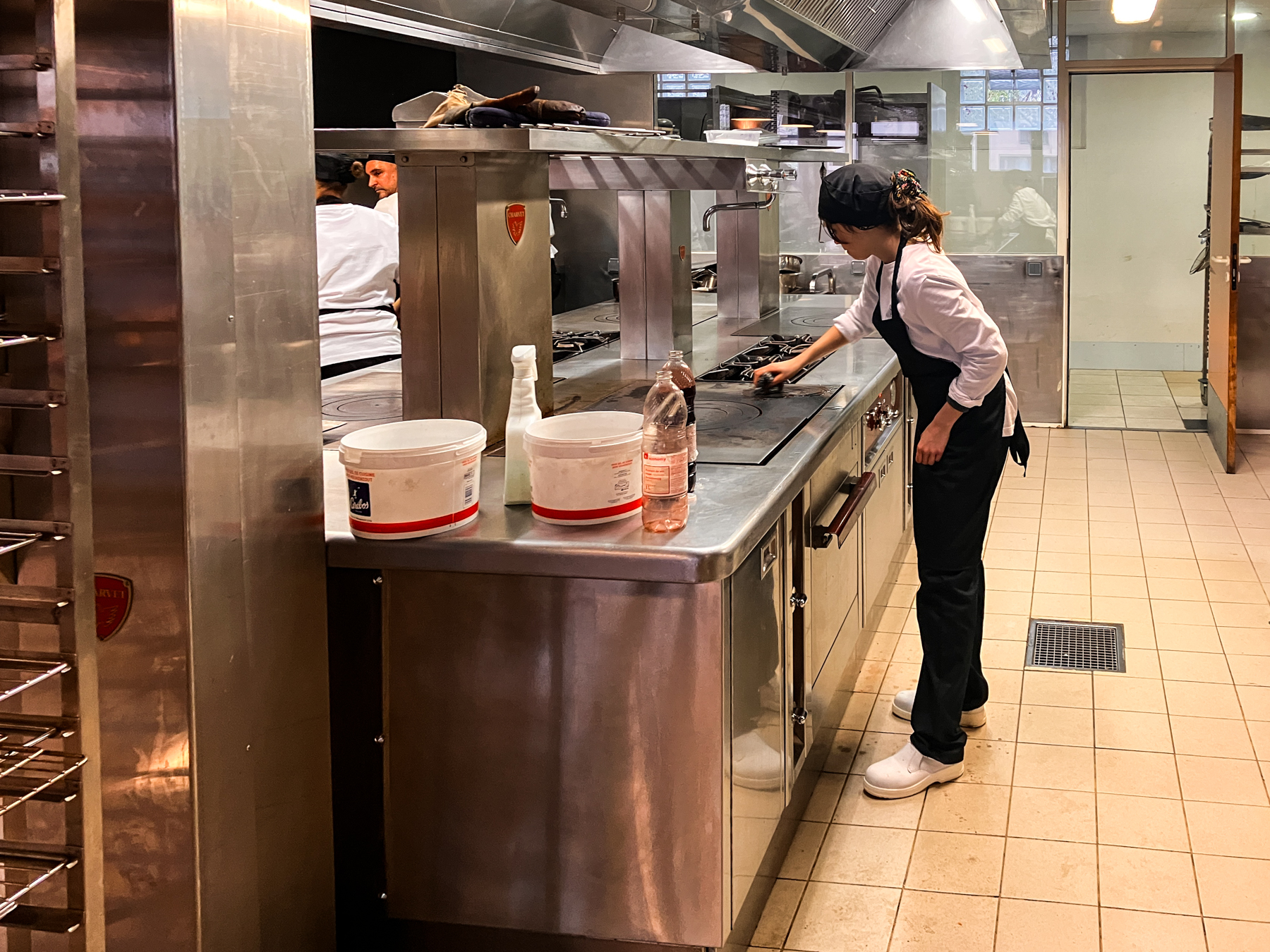A cook trainee cleans the stove at the Cuisine Mode d’Emploi(s) in Paris. Photo by Bill Diem.
STORY BY BILL DIEM
Accounts of people “lifting themselves up by their bootstraps” have been around for more than a century, since the phrase took on its current meaning. Critics say that hard work is not enough, but true stories of success from unlikely starts abound.
Thierry Marx, French chef of the year in 2006, is one of those stories. He was a poor student from a bad neighborhood. His grades weren’t good enough to get into hotel school, and he dropped out of a school for building trades. “I was furious … ,” he told The Figaro, a French newspaper. “I messed around, got into fights. I ran away, I escaped to Paris … Champigny-sur-Marne, the city where I lived, was a ghost town, a wasteland.”
But young Thierry Marx got an internship with the strict teachers of the Companions de Devoir and learned the rules for patisserie, how to bake French pastries and sweets. His cooking career took off, and after winning Michelin stars at two restaurants and becoming Chef of the Year, he had an audience.
“The press liked my personality,” he said in a November 8th interview with the Anglo-American Press Association in Paris. “They talked about how I came from a difficult background.” This made him think about how he could help others from the wrong side of the tracks to succeed. First he worked with Restaurants de Coeur, a French association for feeding people, and then in 2012 he and friends established a cooking and bakery school, Cuisine Mode d’Emploi(s), aimed at giving people without the right backgrounds a free education.
“A maximum number of people need to have a chance to succeed,” said Marx. “We have people who were far from getting a job, sometimes very far,” through no fault of their own.
Most CME students are young adults, but some are much older. Some are immigrants. Many are children of immigrants.
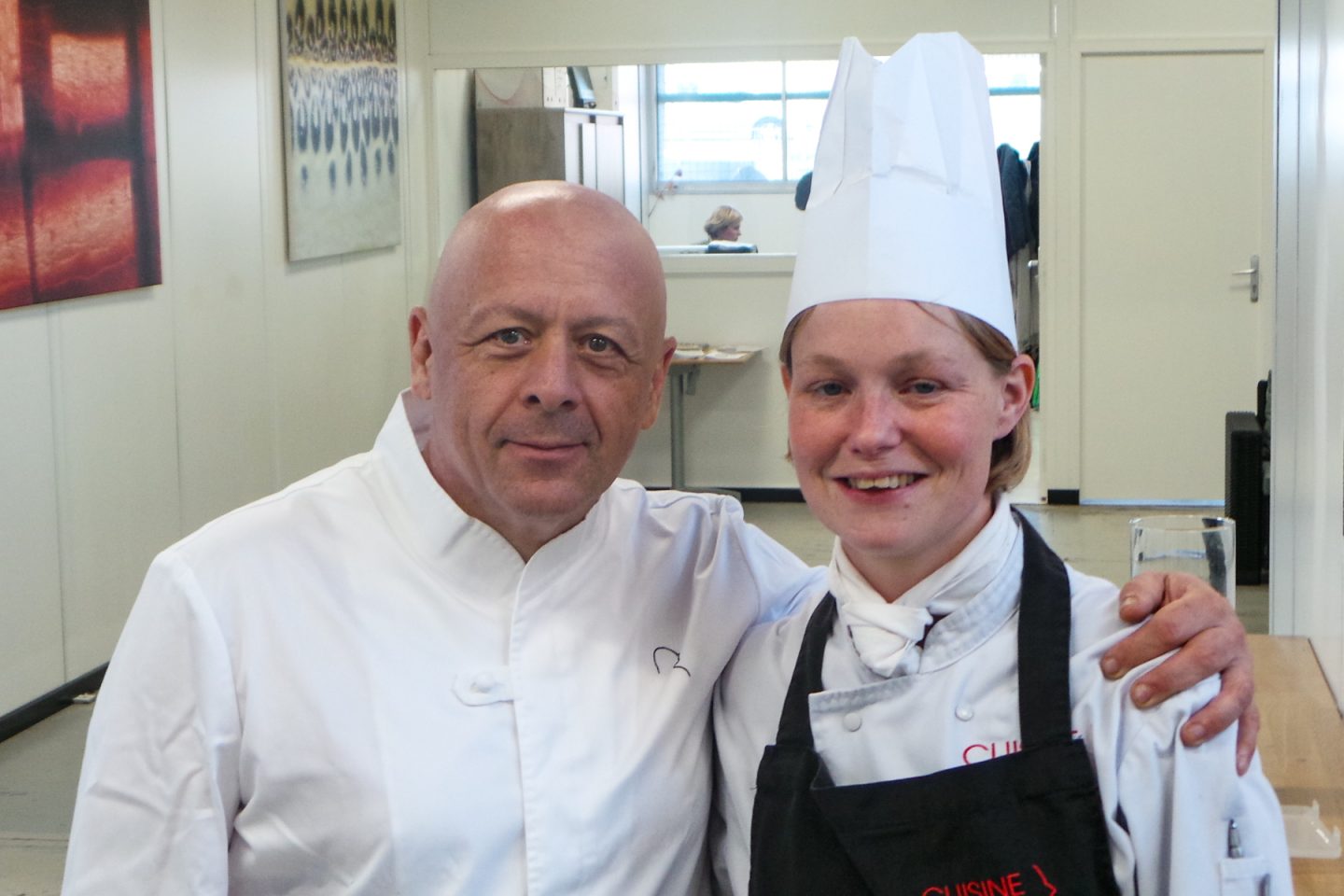
Thierry Marx with Véronique Demoly. Marx visits all the schools, as he did the CME school in Besançon in 2017 when Véronique Demoly was a student. Photo provided by CME.
“French society is divided,” Marx said. “We need to offer bridges, and cooking is a marvelous world.”
Since starting the first school in Paris, the project has added eight schools around France, training 650 people a year to take jobs in food service or bakeries. Marx said French food industries hire 250,000 people every year, and more than 90 percent of students find work right away. Even better, he said, 7 percent of graduates have established their own businesses, from restaurants and tea rooms to food trucks and catering operations.
“The training was rich and condensed. It’s incredible!” said Véronique Demoly, who graduated from the CME school in eastern France’s Besançon in 2017. “In a minimum of time we managed, with a lot of work and commitment, to acquire know-how and techniques and the ability to organize ourselves professionally.”
Upon graduating, she established Chez Cocotte, a catering company in her town of Damprichard, which is near the Swiss border, five and a half hours from Paris. In six years she has grown from an itinerant food truck to a kitchen from which she delivers meals to the village elderly, sells take-out meals, and caters events. Next, she said, “I would like to establish a small terrace outside for clients who come by.”
For Marx, the school teaches much more than just cooking skills and 90 classic French recipes. It teaches passion. If people have a métier, a trade, he says, they will always be somebody, even at times when they don’t have a job.
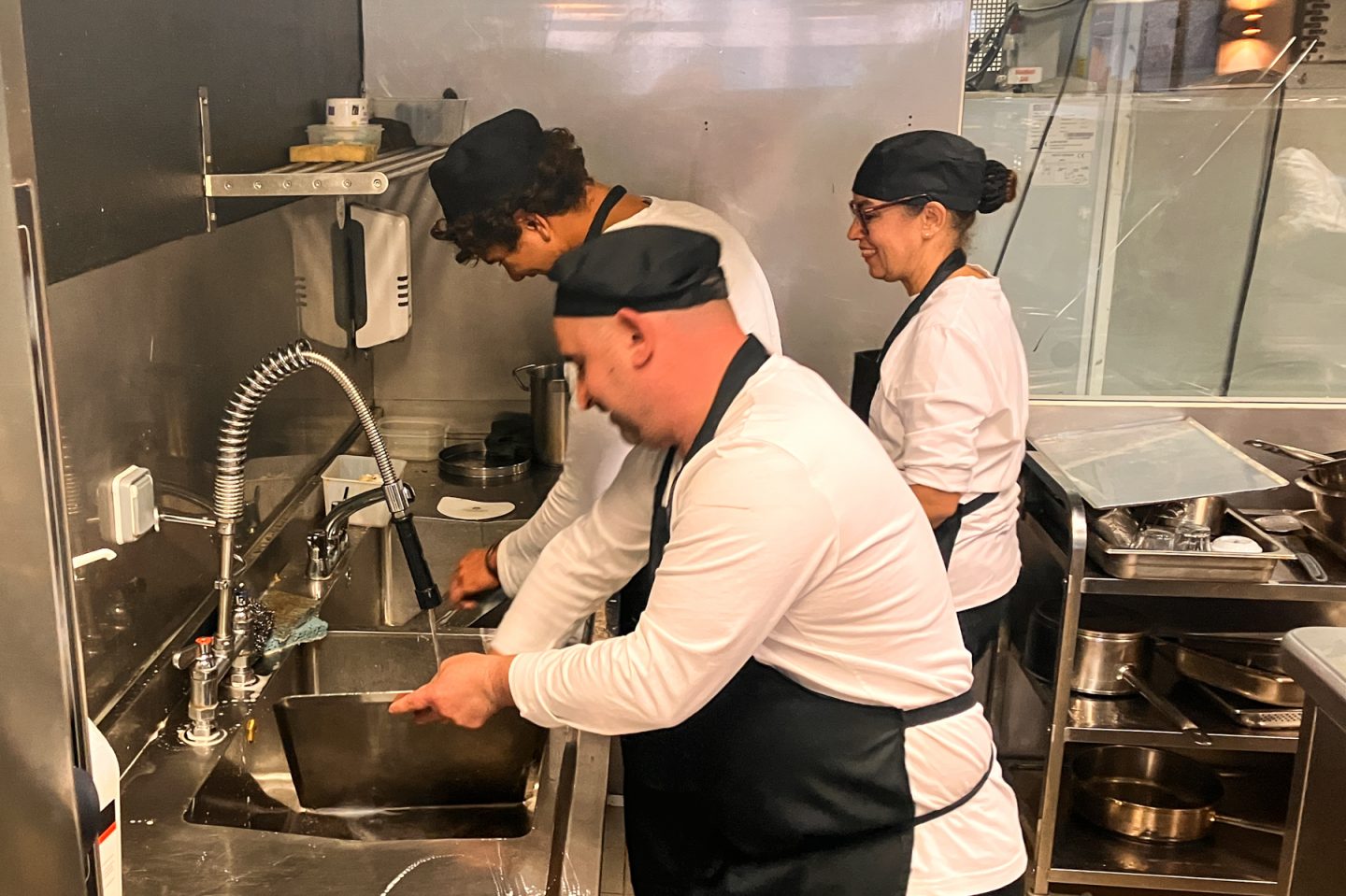
One learns the importance of dishwashing at the school by doing it. Photo by Bill Diem.
Aguyness Colley, now the chef at Muse, a restaurant in the Paris suburb of Saint-Ouen, remembers the moment she knew that cooking was for her. She and fellow students at the Paris CME school had to travel to the Energy Regulation Commission to prepare a meal for strangers without a real kitchen.
“It was not an easy situation, there was a lot of stress, but the team was able to manage with the help of teachers. The dish I prepared was sweet potato puree with ginger and spiced duck,” she recalled. “It was a great experience that confirmed my desire to cook.”
After graduating in 2017, she had several jobs in food service before establishing her own catering operation and working as chef for special events. She became chef at Muse in October, creating Caribbean and African dishes like cucumbers Antilles, African niebe beans (black-eyed pea) with roast plantains, and hibiscus tiramisu.
Rather than a scholastic rhythm, CME operates on “the rhythm of the workplace,” said Marx. Students are learning in the schools’ kitchens for eight weeks, then placed as interns in restaurants for three weeks. People looking for an easier, softer way won’t find it at Cuisine Mode d’Emploi(s).
Marx’s contract between the school and the students is RER: Rigueur, Engagement, Régularité. “Rigor is to have a project, engagement is to look ahead to the future, and regularity is to be on time,” said Marx. “No absences, no arriving late.”
Véronique Demoly in Damprichard remembers the lesson well. “The RER of Chef Thierry Marx,” she said, “is still for me a leitmotif.”
At CME, students learn by doing. The usual arrangement is 10 students for each teacher. Teachers are cooks who want to pass on their know-how. The basics are simple. Cooking requires good products, preparing them, and cooking them with the right timing.
However, cooking for people is more than feeding them, said Marx. “When you offer your food to someone, you establish an invisible connection of confidence.”
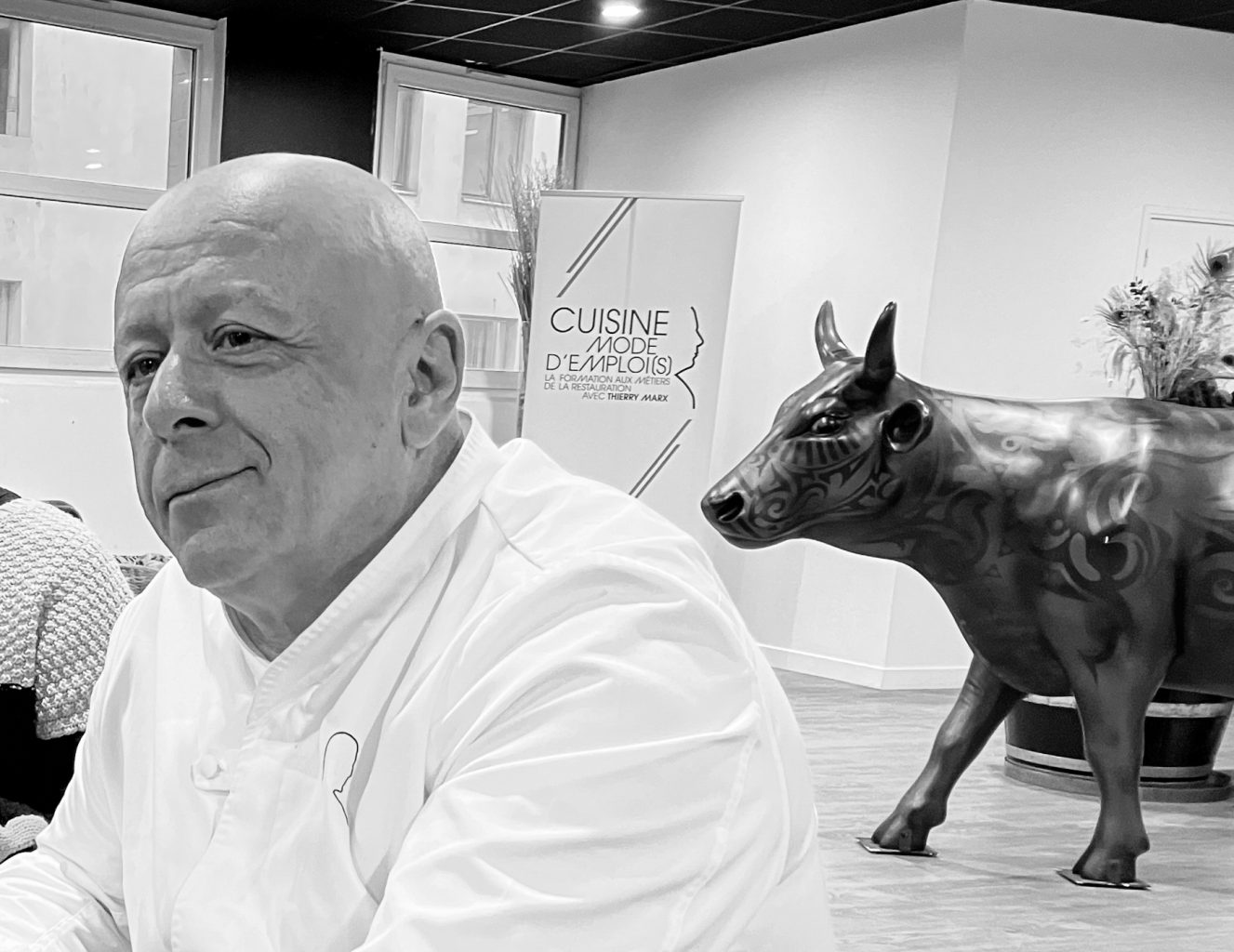
Photo of Thierry Marx by Bill Diem.
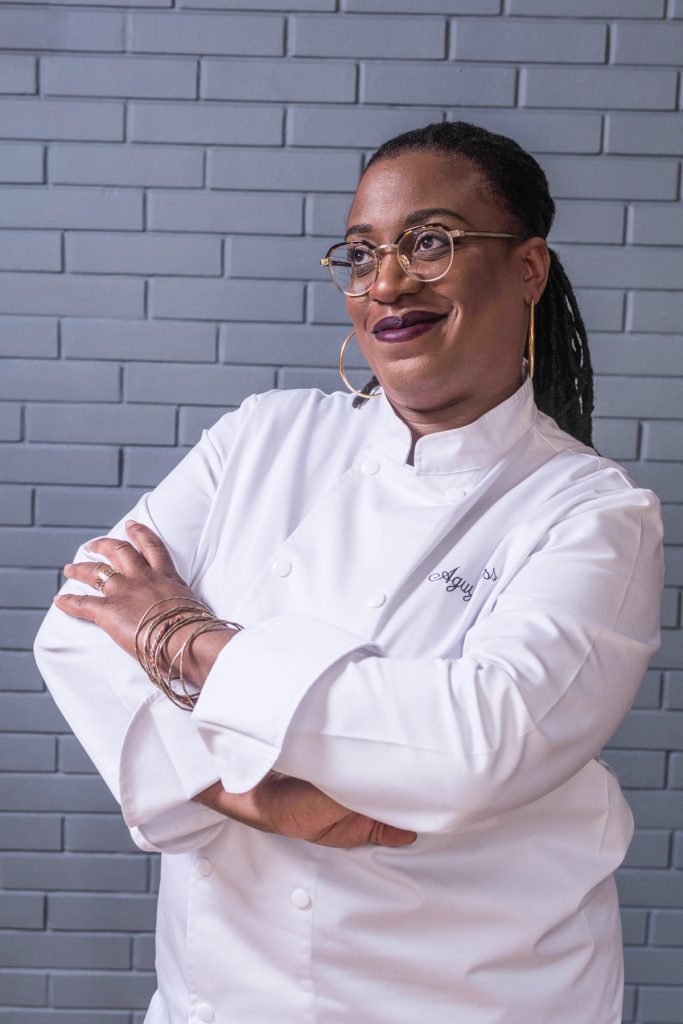
Photo of and provided by Aguyness Colley.
“[The school] was a great experience that confirmed my desire to cook.”
– Aguyness Colley
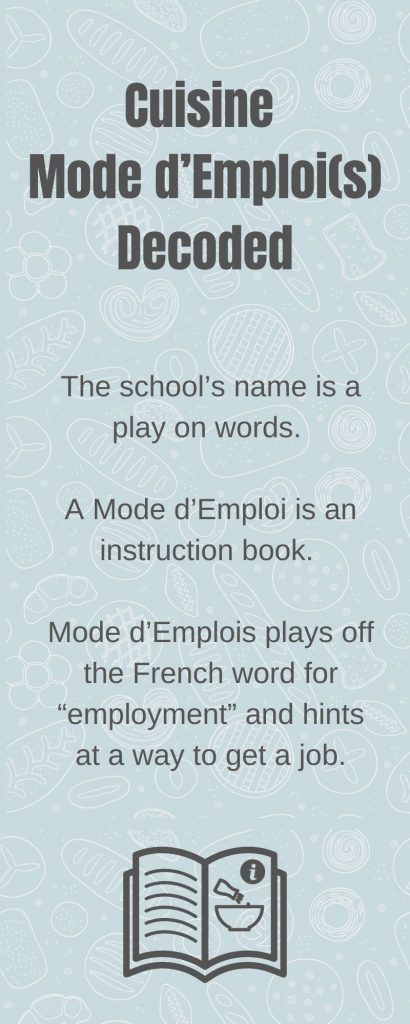
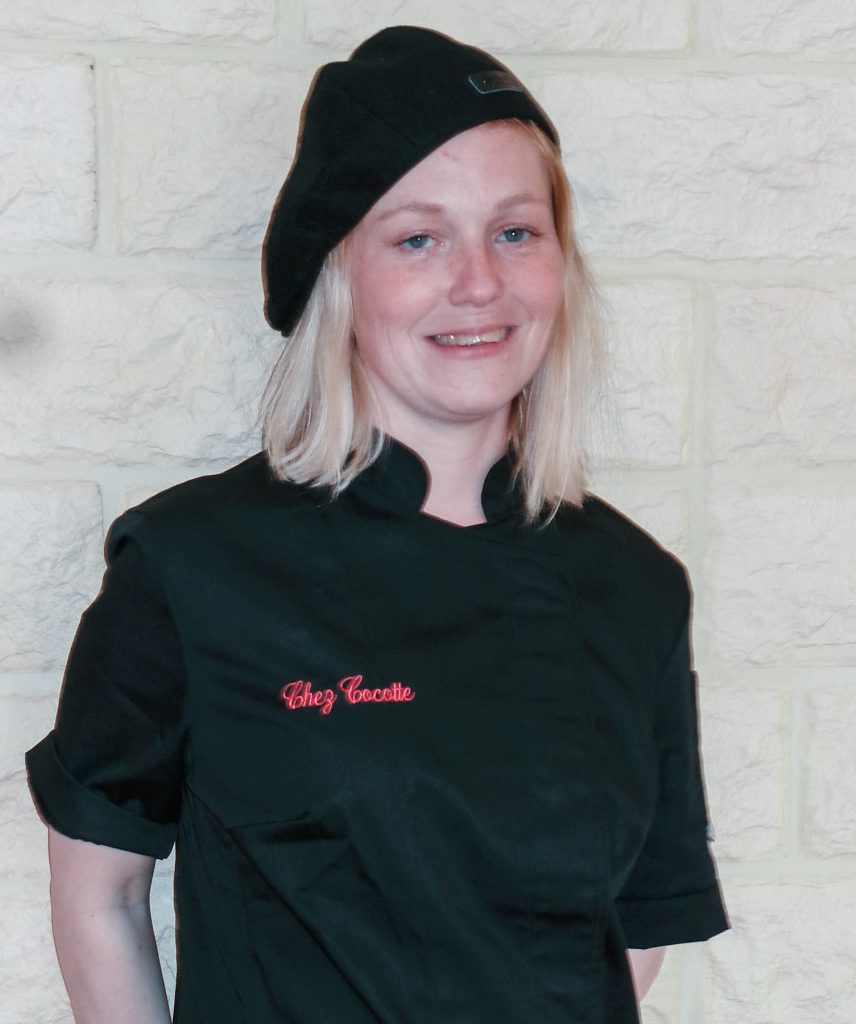
Photo of Véronique Demoly provided by CME.
“In a minimum of time we (acquired) … the ability to organize ourselves professionally.”
– Véronique Demoly
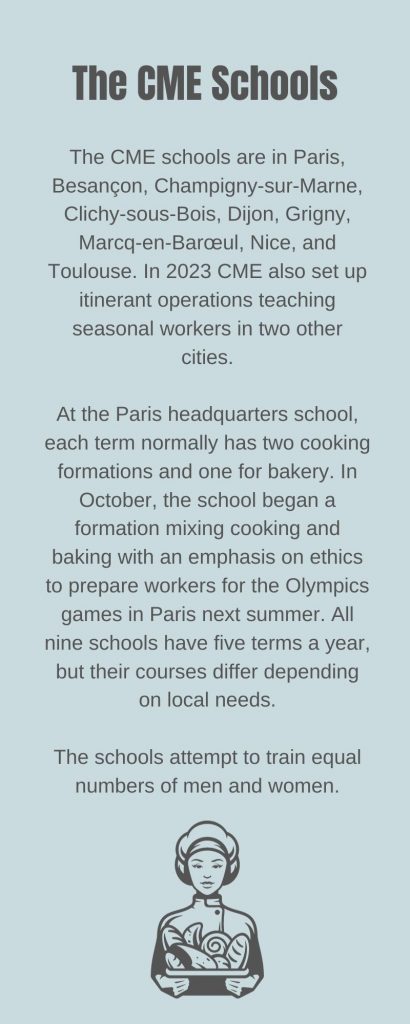
“We need to offer bridges, and cooking is a marvelous world.”
– Thierry Marx
Bill Diem, a graduate of Ohio Wesleyan University and Antioch College, contributes a weekly column to the Newberry News in Michigan, and he is learning to be a video journalist. For three decades, he was a print journalist best known for his coverage of technology and industrial strategy in the global automobile industry.

